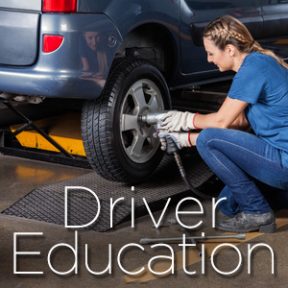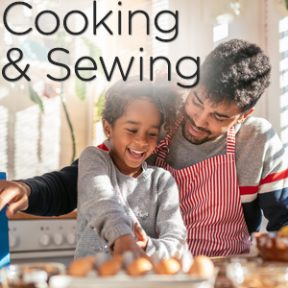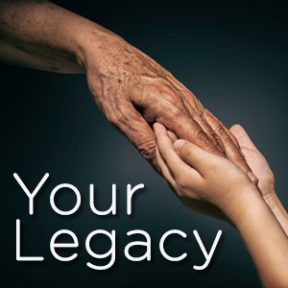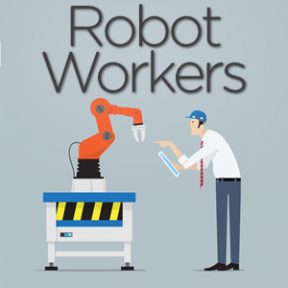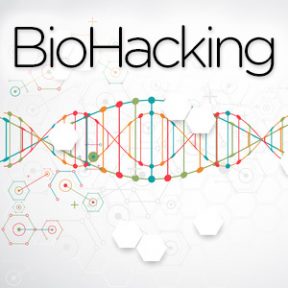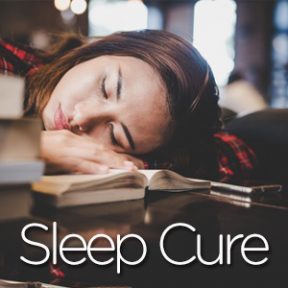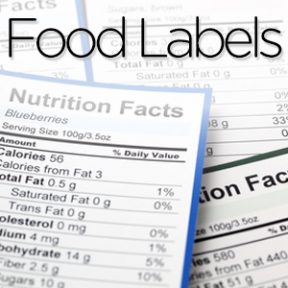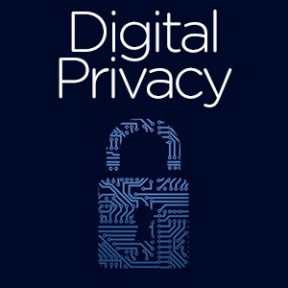 I remember when I got my first car. I learned how to tune it up, change the fan belt, and change the oil and filters. I even rebuilt my 4-cylinder engine just to make sure I understood how the internal combustion engine worked – my father had one of his mechanics guide me through the process. It gave me great satisfaction to know when the carburetor needed adjusting and that I could maintain my car by myself. Of course that was back in 1973 when cars were much simpler than they are today.
I remember when I got my first car. I learned how to tune it up, change the fan belt, and change the oil and filters. I even rebuilt my 4-cylinder engine just to make sure I understood how the internal combustion engine worked – my father had one of his mechanics guide me through the process. It gave me great satisfaction to know when the carburetor needed adjusting and that I could maintain my car by myself. Of course that was back in 1973 when cars were much simpler than they are today.
Remember when schools had auto shops? Schools have stopped offering these courses for several reasons: (1) to save money on building shops and outfitting them with the equipment and materials needed for these specialty classes; and (2) students (or their parents) are more interested in taking rigorous academic classes to stack their transcripts with AP courses to impress college admissions officers.
When my girls got their first cars, I created an auto shop class for them at Merit Academy where they learned everything they needed to know before they got behind the wheel. They learned how to change the oil and filter, rotate tires, and check fluids and lubrication. They also spent the day with an automatic transmission specialist to see the inner workings of a transmission. Other field trips included watching a car get smog tested, talking to a woman from Mother’s Against Drunk Driving (MADD), and visiting a rehab center where they met with paraplegic and quadriplegic teen survivors.
At the end of the class, they met with a CHP officer to see what happens if they are pulled over for being under the influence of alcohol or drugs. The officer actually handcuffed them after making them walk a straight line wearing vision-altering glasses. Each student took CPR and First Aid at the American Red Cross as the final requirement for the course.
Driving a car requires maturity that most 16 year olds don’t have, but giving them an education and hands-on learning experiences so they know how to handle their cars gives them the foundation to make smart decisions. Since everyone drives a vehicle, shouldn’t schools offer classes to teach the students more than traffic rules?

 I remember when I got my first car. I learned how to tune it up, change the fan belt, and change the oil and filters. I even rebuilt my 4-cylinder engine just to make sure I understood how the internal combustion engine worked – my father had one of his mechanics guide me through the process. It gave me great satisfaction to know when the carburetor needed adjusting and that I could maintain my car by myself. Of course that was back in 1973 when cars were much simpler than they are today.
I remember when I got my first car. I learned how to tune it up, change the fan belt, and change the oil and filters. I even rebuilt my 4-cylinder engine just to make sure I understood how the internal combustion engine worked – my father had one of his mechanics guide me through the process. It gave me great satisfaction to know when the carburetor needed adjusting and that I could maintain my car by myself. Of course that was back in 1973 when cars were much simpler than they are today.
Remember when schools had auto shops? Schools have stopped offering these courses for several reasons: (1) to save money on building shops and outfitting them with the equipment and materials needed for these specialty classes; and (2) students (or their parents) are more interested in taking rigorous academic classes to stack their transcripts with AP courses to impress college admissions officers.
When my girls got their first cars, I created an auto shop class for them at Merit Academy where they learned everything they needed to know before they got behind the wheel. They learned how to change the oil and filter, rotate tires, and check fluids and lubrication. They also spent the day with an automatic transmission specialist to see the inner workings of a transmission. Other field trips included watching a car get smog tested, talking to a woman from Mother’s Against Drunk Driving (MADD), and visiting a rehab center where they met with paraplegic and quadriplegic teen survivors.
At the end of the class, they met with a CHP officer to see what happens if they are pulled over for being under the influence of alcohol or drugs. The officer actually handcuffed them after making them walk a straight line wearing vision-altering glasses. Each student took CPR and First Aid at the American Red Cross as the final requirement for the course.
Driving a car requires maturity that most 16 year olds don’t have, but giving them an education and hands-on learning experiences so they know how to handle their cars gives them the foundation to make smart decisions. Since everyone drives a vehicle, shouldn’t schools offer classes to teach the students more than traffic rules?

 Remember when students used to be able to take classes that they enjoyed, instead of taking classes because they “look good” to college admissions officers? Remember when schools offered home econ classes where you learned how to cook and sew? Somewhere over the past 50 years, schools have stopped offering courses that all students need to lead healthy, productive lives today.
Remember when students used to be able to take classes that they enjoyed, instead of taking classes because they “look good” to college admissions officers? Remember when schools offered home econ classes where you learned how to cook and sew? Somewhere over the past 50 years, schools have stopped offering courses that all students need to lead healthy, productive lives today.
I learned how to make Potato Boats in 7th grade Home Ec. It was simple: It’s just a baked potato that is gutted and mixed with butter, chives and chunks of cheese, and then baked again. Today it’s always a hit at dinner parties. A real foodie, I love to whip up dishes using Indian spices and create healthy, yet delicious meals.
Maybe because it’s so easy to grab a burger or take-out food, that we don’t cook at home anymore. Or, is it because we’re so busy that we can’t justify the time it takes to shop, cook and clean. But then, we put our nutrition in the hands of corporations who are more interested in bigger profits than our good health. So we’re eating foods that aren’t even real foods. When fast food chains claim that their burgers are “All Beef,” they actually can have meat from hundreds of animals including horse meat and chemical fillers. So let’s get back to feeding our children good home cooked meals and get them in the kitchen to help!
I also learned how to sew in a sewing class in 8th grade. My teacher showed me how to make my own patterns, sew zippers, and create just about anything with a sewing machine and a good pair of scissors. While my girls were into dance and theater, I made 6 tuxedos, 8 lederhosen, and 100s of costumes. I even won a costume award for one of Jaclyn’s dance competition costumes. But more importantly, it was fun as I designed and showed my girls how to create something out of a bolt of fabric. They both took sewing classes at Merit Academy during the summer and made dresses. Just yesterday, I sewed cushions and a custom cover for my dogs’ crates. Both cooking and sewing are skills that I am so grateful to have.
It used to be that sewing clothes was less expensive than buying them, but when you can buy clothes made in 3rd-world factories by slave labor, it’s cheaper and easier to just shop at Target or Ross. Do a little research about where your clothing is produced and who is doing the sewing, and I’ll bet you’ll reconsider where you buy your clothes. You might even start sewing simple outfits like skirts, shirts, and dresses.
Instead of indulging our children’s every wish for new electronic devices every time something new hits the market, buy them a sewing machine. It’ll probably last them their whole lives and it’ll give them the ability to hem pants, bring clothes in or let them out, and make fun things like pillows. With just one sewing class, you can open the door to more independence and creativity. And, they’ll have a skill that their peers don’t have. I’m surprised that so many people don’t know how to sew today. It’s really a lost art.
Rather than force students to study US History for years or to take biology, chemistry, and physics when they might not be interested in STEM, let’s give students the opportunity to learn skills that they’ll need when they grow up. EVERYONE NEEDS TO KNOW HOW TO COOK AND SEW.

 Everyone strives to be successful – whether it’s to be a doctor or engineer, the first to do something exciting, or to be mega-rich – it’s engrained in us from the moment we start school in kindergarten and throughout our lives. So wouldn’t true success culminate in an obituary listing your successful career? Actually, no; and here’s why.
Everyone strives to be successful – whether it’s to be a doctor or engineer, the first to do something exciting, or to be mega-rich – it’s engrained in us from the moment we start school in kindergarten and throughout our lives. So wouldn’t true success culminate in an obituary listing your successful career? Actually, no; and here’s why.
I just watched an interesting TED talk about Lux Narayan, owner of a company that focuses on future insights that marketers can derive from past data, who analyzed over 2,000 obituaries in the New York Times to see how both famous and ordinary people were remembered at the end of their lives by loved ones. He stripped out their names and filler words to compile what was “real achievement” for these people. Over 40% considered contributions in the arts (theater, music, film, and dance) to be indicators about their success. Wow. So why do people think they have to be doctors, engineers, lawyers, or businesspeople to be successful?
Narayan’s research showed that people valued the extraordinary things that their loved ones did that made a positive dent in others’ lives. The take-away message here: If more people lived their lives trying to be famous in death, the world would be a much better place.
[Source]
 When almost 9 million tons of plastic ends up in our oceans every year, recycling is NOT the solution. I’ve been trying to get that concept across to students, teachers, friends and family for years but most people think I’m eccentric. We need to stop buying and using plastics PERIOD. Instead, use glass or metal!
When almost 9 million tons of plastic ends up in our oceans every year, recycling is NOT the solution. I’ve been trying to get that concept across to students, teachers, friends and family for years but most people think I’m eccentric. We need to stop buying and using plastics PERIOD. Instead, use glass or metal!
When I heard Delhi banned plastic bags, cups and cutlery, I was thrilled because 60% of plastic waste found in our oceans comes from India. France was actually the first country to ban plastic cups, plates and cutlery. Yes, France!
So why is plastic so bad? It’s a petroleum product (HINT: need to use fossil fuels to produce it) and it never breaks down. Fish and birds mistaken it for food, and die. Over 100,000 marine creatures die each year from ingesting or getting tangled in plastic.
I personally refuse to buy drinks sold in plastic bottles – instead, I drink water with lemon juice out of glass bottles. It’s clean and can be reused and recycled. Bacteria can be washed away in glass unlike its plastic counterparts where the bacteria remains in the plastic even after washing. India is setting a great example in banning all disposable plastics. I hope the world follows suit and bans disposable plastics.
[Source]
 With artificial intelligence and robotics capable of calculating and producing products and doing what people have done for centuries, the future of jobs for human beings will be creative, critical and social. So why are classes designed to teach students to act like machines? Regurgitating facts and sitting quietly in rows doesn’t stimulate innovation. As the director at Merit Academy, I have been approached by several Chinese schools (public and private) to help them improve their rote curriculum. Their students are bright, eager to please, and hardworking but they can’t compete in our entrepreneurial and technological world because they aren’t taught to analyze and think critically.
With artificial intelligence and robotics capable of calculating and producing products and doing what people have done for centuries, the future of jobs for human beings will be creative, critical and social. So why are classes designed to teach students to act like machines? Regurgitating facts and sitting quietly in rows doesn’t stimulate innovation. As the director at Merit Academy, I have been approached by several Chinese schools (public and private) to help them improve their rote curriculum. Their students are bright, eager to please, and hardworking but they can’t compete in our entrepreneurial and technological world because they aren’t taught to analyze and think critically.
The average Chinese class size is 50, but many classes have as many as 80 students. In order to manage a class size that large, teaching has to be a one-way lecture and learning has to be done with worksheets and multiple choice answers. Students don’t learn how to write research papers or literary analyses. Imagine editing 80 essays for one class? It’s simply impossible for a teacher to manage.
I take pride in watching Merit students thrive. With one-on-one classes where teachers engage in conversations with students, and students are encouraged to think outside the box and explore concepts and ideas in depth, it is really the ideal environment for developing our future leaders. I’ve met with the teachers and love to hear their plans for each student they teach. The students ranked their teachers with the highest ratings possible. My favorite role is as their college advisor who guides the students as they launch their projects. Each student finds their passion and sets out to change the world. Imagine if all schools – Chinese included — encouraged this type of leadership? We could solve many of the problems we face today. I feel like I’m the luckiest person in the world to have this opportunity.
 Remember Dolly – the first cloned mammal that was created in Scotland in 1996? That created an uproar worldwide about cloning any living thing. Today, expert panels have been trying to set guidelines to ensure that scientists don’t start creating superhumans using Crispr, a gene-editing device. I wrote about Crispr and how difficult it will be to keep unethical people from misusing this genome-editing technique that is available in university and science labs around the globe.
Remember Dolly – the first cloned mammal that was created in Scotland in 1996? That created an uproar worldwide about cloning any living thing. Today, expert panels have been trying to set guidelines to ensure that scientists don’t start creating superhumans using Crispr, a gene-editing device. I wrote about Crispr and how difficult it will be to keep unethical people from misusing this genome-editing technique that is available in university and science labs around the globe.
Biohackers claim that people should have access to technology that can cure diseases, which most people probably agree with. But, how do we stop this same technology from increasing people’s IQs or changing their physical attributes? Gene-editing technology is available online and many entrepreneurs are claiming that it is a human right. Their argument: genetic choice is a human right.
There is no simple solution to this ethics debate but there is a need for universal policies to be set to prevent misuse of this technology, and it needs to be done now. Chinese scientists now lead the way with gene-editing technology and claim that they have already modified human genes in their labs. It’s time to settle this debate and set some guidelines to protect mankind.
[Source]
 Did you know that 70-85% of teens DON’T GET the recommended 8 ½ hours sleep per night? And 30% of adults don’t get their 7 hours of sleep per night. According to Dr. Matthew Walker, professor of Neuroscience and Psychology at UC Berkeley, he used to suggest that sleep was the 3rd pillar of good health, along with diet and exercise, but now he says that SLEEP IS THE SINGLE MOST EFFECTIVE THING YOU CAN DO TO RESET YOUR BRAIN AND BODY FOR HEALTH.”
Did you know that 70-85% of teens DON’T GET the recommended 8 ½ hours sleep per night? And 30% of adults don’t get their 7 hours of sleep per night. According to Dr. Matthew Walker, professor of Neuroscience and Psychology at UC Berkeley, he used to suggest that sleep was the 3rd pillar of good health, along with diet and exercise, but now he says that SLEEP IS THE SINGLE MOST EFFECTIVE THING YOU CAN DO TO RESET YOUR BRAIN AND BODY FOR HEALTH.”
Poor sleep is now linked to a higher risk of heart disease, diabetes, high blood pressure and obesity. It can also increase the risk of dementia and depression or posttraumatic stress disorder (PTSD) and anxiety. Poor sleep is linked to overall risk of premature death, just as smoking, bad nutrition, and lethargy. In a recent study on mice, sleep deprivation caused death faster than starvation can. Yikes!
Sleep’s primary evolutionary function is to clean out the brain, quite literally, of accumulating debris, according to Dr. Maiken Nedergaard. “It’s like a dishwasher that keeps flushing through to wash the dirt away.” Our bodies need to get rid of these toxins that can damage healthy cells.
We all know that chronic inflammation is a leading driver in some cancers, mental decline, heart disease, Type 2 diabetes, and pain. But did you know that one of the causes of inflammation is sleep deprivation?
So the take-away message here is GET YOUR SLEEP EVERY NIGHT! That means that kids need 8.5 hours and adults need 7. Left to their devices, kids will stay up til midnight and get just 5-6 hours of sleep a night. Do the math and set your bedtime. Be the adult in your family and force your teens and children to get enough sleep every night. They’ll be healthier and happier for it!
[Source]
 My husband and I have many “discussions” about the dates that are printed on our packaged food. He claimed that the printed dates were simply dates by which the stores need to sell the food, which means that we could still eat the food days later. But I, on the other hand, tossed out the food on the dates listed because I didn’t want to get sick eating spoiled food. Apparently we weren’t the only ones confused by these dates.
My husband and I have many “discussions” about the dates that are printed on our packaged food. He claimed that the printed dates were simply dates by which the stores need to sell the food, which means that we could still eat the food days later. But I, on the other hand, tossed out the food on the dates listed because I didn’t want to get sick eating spoiled food. Apparently we weren’t the only ones confused by these dates.
The entire grocery industry also had difficulty with the wording used on the food they sold. Today, manufacturers use wording like “Expires on” to “Use by” to “Better if used by,” which can mean anything from the food will be spoiled to the peak flavor will be best if consumed by this date. There hasn’t been any regulations in place so it has been up to the grocery stores to interpret these dates. Only 20 states mandate that grocery stores pull food after expiration dates – hmm – so 30 states don’t pull food off the shelves?
The Food Marketing Institute and the Grocery Manufacturers Association just announced that they’ve standardized product date labels. That’s the good news; the bad news is that they aren’t going to do this until 2018. Until then, I plan to do the sniff test. If it smells good, I’ll eat it. If it smells rotten or looks off, I’ll toss it.
[Source]
 Did you know that Marie Antoinette didn’t actually say, “Let them eat cake!”? Yup! Fake news has been around for centuries and as you can see, it this particular statement has been repeated so often that it has ended up in our history lectures still today. But today fake news is so prevalent that most students (in all grade levels) don’t have the critical thinking skills to decipher what’s real and what’s fake. So here are ways that teachers – and you – can help students wade through all the propaganda thrown at them.
Did you know that Marie Antoinette didn’t actually say, “Let them eat cake!”? Yup! Fake news has been around for centuries and as you can see, it this particular statement has been repeated so often that it has ended up in our history lectures still today. But today fake news is so prevalent that most students (in all grade levels) don’t have the critical thinking skills to decipher what’s real and what’s fake. So here are ways that teachers – and you – can help students wade through all the propaganda thrown at them.
According to teacher Scott Bedley (who was interviewed by NPR’s Sophia Alvarez Boyd), you can play Simon Says to encourage students to make their own educated decisions about what’s true and what’s false in the news. Students should consider the following before answering:
- How reliable is the source? (Was it written by a major magazine or legitimate expert?)
- What does your gut say? (Does it sound possible?)
- Does it make sense?
- Can you find 3 other sources to verify this same finding?
- Have experts in the field commented about it?
- Does it have a copyright?
Bringing awareness about how easy it is to create fake news on Twitter, Facebook, and other social media is the first step in preparing students for wading through the junk they read on the internet. Then making sure that students don’t perpetuate or inadvertently spread these lies by sharing news that they don’t carefully vet is the next step. These are things that we all need to do to maintain truth in social networking and information sharing. Instant access to information can be a blessing and a curse.
[Source]
 Whether you’re an American traveling abroad or a foreigner visiting the United States, you need to protect your digital privacy. US Customs can legally search your devices and demand access to your computer and phones with little formal cause or oversight – basically breaking the 4th Amendment of our Constitution. Yup! But there are steps you can take to make it more difficult for them to invade your privacy. Here are 4 tips to protect you and your personal information:
Whether you’re an American traveling abroad or a foreigner visiting the United States, you need to protect your digital privacy. US Customs can legally search your devices and demand access to your computer and phones with little formal cause or oversight – basically breaking the 4th Amendment of our Constitution. Yup! But there are steps you can take to make it more difficult for them to invade your privacy. Here are 4 tips to protect you and your personal information:
#1: Lock Down Devices
Encrypt your hard drive using BitLocker or Filevault. Turn off your devices before entering customs because you’ll have full protection with these tools when your computer is fully powered down.
#2: Withhold your Passwords
Legally, American citizens can’t be deported for refusing to give up passwords but custom officials can detain you and they can seize your devices for months. But, they’ll have to allow you to return to the US and you will be able to go home – but your devices may be held up in a forensic facility if they really want to get into them.
#3: Phone Home
Call a friend or family member (or your lawyer) before you enter and after you get through customs to ensure that someone can represent you should you be detained. Without your phone or devices, you may not have the ability to get legal help while in their custody.
#4: Make a Travel Kit
If you’re concerned that you may be a target of suspicion at the border, leave your computer and devices that contain all of your sensitive and private information at home. Travel with a laptop and devices that have been wiped clean and have only the information you need for your travels.
These tips may seem extreme, and they probably are for most of us, but if you have a Muslim name or you’re traveling to and from Muslim countries, these tips may protect you from personal invasion. To learn more about how to further protect yourself, read Wired’s article “Guide to Getting Past Customs With Your Digital Privacy Intact.”
[Source]

